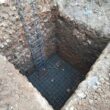Did you know that the global heating appliances market size is projected to grow to $67.58 billion by 2030?
This is due to the increasing demand for energy-efficient heating appliances, as well as the rise in construction activities across the globe. However, with so many options available on the market, finding the best replacement heaters can be a daunting task.
This document aims to provide you with information and recommendations on what are the best replacement options for old heaters in houses. Let’s dive into it!

Electric Heaters
Electric space heaters are perfect for smaller spaces and don’t require any gas lines. This makes them an excellent replacement option for old heaters. They are also energy-efficient as they convert 100% of the electricity into heat.
Moreover, they don’t emit any harmful gases or particles. This makes them safe and environmentally friendly.
There are various types of electric heaters available on the market. They are convection heaters, radiant heaters, and fan heaters. Each type has its pros and cons, so it’s essential to consider your needs before making a purchase.
Convection Heater
A convection heater heats the air directly and then circulates it around the room. It’s quiet, compact, and provides even heat distribution.
However, it takes some time to heat up a room. This type of heater is ideal for rooms that require constant heating, like bedrooms.
Radiant Heater
A radiant heater heats up objects and people directly. It provides instant heat and is suitable for larger spaces.
Like Us on Facebook!
However, it can be a fire hazard if left unattended or used incorrectly. It is essential to follow the manufacturer’s instructions when using this type of heater. To help make an informed decision when choosing this type of heater, check out this radiant heat panel.
Subscribe Us on YouTube!
Fan Heater
A fan heater is a combination of convection and radiant heaters. The heating element heats the air, and the fan circulates it around the room. It’s perfect for immediate heat but can be noisy.
Gas Heaters
Gas heaters are a popular choice for many households, mainly because they are cheaper to run than electric heaters. They also provide instant heat and work even when the power is out.
However, gas heaters emit harmful gases like carbon monoxide. This can be dangerous if not properly maintained or ventilated. It’s crucial to have your gas heater serviced regularly to ensure its safe operation.
There are two types of gas heaters, vented and unvented. Vented gas heaters require a flue or chimney to vent the combustion gases. Unvented gas heaters release the gases back into the room.
Human-Electric Hybrid Heaters
Human-electric hybrid heaters are relatively new on the market and use body heat to generate electricity. They have a built-in thermoelectric generator that converts body heat into electricity, which is used to power the heater.
This type of heater is perfect for small spaces and can save you money on your electric bill. It’s also environmentally friendly as it doesn’t require any external power source.
However, human-electric hybrid heaters are currently limited in their heating capacity. They may not be suitable for larger spaces or colder climates.
Solar Heaters
Solar heaters capture the sun’s energy to heat your home. They are environmentally friendly and can significantly reduce your energy bills.
However, they may require a substantial initial investment and their efficiency is dependent on the amount of sunlight in your area. Here are some types of heaters to consider:
Active Solar Heaters
Active solar heaters use solar collectors and electric pumps to circulate heat. They can be more efficient than passive solar heaters but are also more expensive.
Passive Solar Heaters
Passive solar heaters use the design and materials of a building to collect and distribute heat. They are more affordable than active solar heaters but might not be as efficient.
Geothermal Heaters
Geothermal heaters use the earth’s natural heat to warm up your home. They are very efficient and can save you money in the long run, but their installation can be quite costly and complex. Here are some geothermal home heating systems to consider:
Closed Loop Systems
Closed loop systems circulate a heat transfer fluid through a “loop” of pipe buried underground. The fluid absorbs the heat from the ground and brings it to the surface.
Open Loop Systems
Open loop systems use groundwater as the heat transfer medium, bringing it directly from a well to the home. They are less expensive to install but can be affected by environmental factors like water quality and availability.
Deciding on the Right Heater
Choosing the right heater depends on various factors such as the climate, the size of the room, the cost, and the user’s personal preferences. This section will guide you on how to select an appropriate heating solution for your needs.
Consider Your Space
Different heaters are designed for different spaces. Understanding the size and type of room you want to heat will help you choose the right heater.
Think About Energy Efficient Heating
Energy efficiency is a major consideration when purchasing a heater. While some heaters may have a high upfront cost, they could save you money in the long run due to their high-energy efficiency.
Assess the Installation Process
The installation process can be another determining factor. Some heaters require specialist installation, which can add to the total cost.
Safety Matters
Safety should never be compromised. Make sure the heater you choose comes with safety features like overheat protection and a tip-over switch.
Research and Compare
It’s always a good idea to research and compare different types of heaters before making a purchase. Reading reviews from other users can also provide valuable insights.
Overall, the right heater for you will depend on your personal preferences, budget, and heating needs. It is essential to consider all factors before making a decision to ensure you find the perfect heater for
Old Heaters in Houses: Gone With the Old and in With the New
When it comes to replacing old heaters in houses, there are several options available on the market. Each type has its advantages and disadvantages, so it’s essential to consider your needs and preferences before making a purchase.
Remember to also prioritize safety and energy efficiency when choosing a replacement heater. With the right heater, you can keep yourself and your loved ones warm and comfortable during the colder months.
Need more home advice and information? Take a look around the rest of our blog.
Electric Heaters
Electric space heaters are perfect for smaller spaces and don’t require any gas lines. This makes them an excellent replacement option for old heaters. They are also energy-efficient as they convert 100% of the electricity into heat.
Moreover, they don’t emit any harmful gases or particles. This makes them safe and environmentally friendly.
There are various types of electric heaters available on the market. They are convection heaters, radiant heaters, and fan heaters. Each type has its pros and cons, so it’s essential to consider your needs before making a purchase.
Convection Heater
A convection heater heats the air directly and then circulates it around the room. It’s quiet, compact, and provides even heat distribution.
However, it takes some time to heat up a room. This type of heater is ideal for rooms that require constant heating, like bedrooms.
Radiant Heater
A radiant heater heats up objects and people directly. It provides instant heat and is suitable for larger spaces.
However, it can be a fire hazard if left unattended or used incorrectly. It is essential to follow the manufacturer’s instructions when using this type of heater. To help make an informed decision when choosing this type of heater, check out this radiant heat panel.
Fan Heater
A fan heater is a combination of convection and radiant heaters. The heating element heats the air, and the fan circulates it around the room. It’s perfect for immediate heat but can be noisy.
Gas Heaters
Gas heaters are a popular choice for many households, mainly because they are cheaper to run than electric heaters. They also provide instant heat and work even when the power is out.
However, gas heaters emit harmful gases like carbon monoxide. This can be dangerous if not properly maintained or ventilated. It’s crucial to have your gas heater serviced regularly to ensure its safe operation.
There are two types of gas heaters, vented and unvented. Vented gas heaters require a flue or chimney to vent the combustion gases. Unvented gas heaters release the gases back into the room.
Human-Electric Hybrid Heaters
Human-electric hybrid heaters are relatively new on the market and use body heat to generate electricity. They have a built-in thermoelectric generator that converts body heat into electricity, which is used to power the heater.
This type of heater is perfect for small spaces and can save you money on your electric bill. It’s also environmentally friendly as it doesn’t require any external power source.
However, human-electric hybrid heaters are currently limited in their heating capacity. They may not be suitable for larger spaces or colder climates.
Solar Heaters
Solar heaters capture the sun’s energy to heat your home. They are environmentally friendly and can significantly reduce your energy bills.
However, they may require a substantial initial investment and their efficiency is dependent on the amount of sunlight in your area. Here are some types of heaters to consider:
Active Solar Heaters
Active solar heaters use solar collectors and electric pumps to circulate heat. They can be more efficient than passive solar heaters but are also more expensive.
Passive Solar Heaters
Passive solar heaters use the design and materials of a building to collect and distribute heat. They are more affordable than active solar heaters but might not be as efficient.
Geothermal Heaters
Geothermal heaters use the earth’s natural heat to warm up your home. They are very efficient and can save you money in the long run, but their installation can be quite costly and complex. Here are some geothermal home heating systems to consider:
Closed Loop Systems
Closed loop systems circulate a heat transfer fluid through a “loop” of pipe buried underground. The fluid absorbs the heat from the ground and brings it to the surface.
Open Loop Systems
Open loop systems use groundwater as the heat transfer medium, bringing it directly from a well to the home. They are less expensive to install but can be affected by environmental factors like water quality and availability.
Deciding on the Right Heater
Choosing the right heater depends on various factors such as the climate, the size of the room, the cost, and the user’s personal preferences. This section will guide you on how to select an appropriate heating solution for your needs.
Consider Your Space
Different heaters are designed for different spaces. Understanding the size and type of room you want to heat will help you choose the right heater.
Think About Energy Efficient Heating
Energy efficiency is a major consideration when purchasing a heater. While some heaters may have a high upfront cost, they could save you money in the long run due to their high-energy efficiency.
Assess the Installation Process
The installation process can be another determining factor. Some heaters require specialist installation, which can add to the total cost.
Safety Matters
Safety should never be compromised. Make sure the heater you choose comes with safety features like overheat protection and a tip-over switch.
Research and Compare
It’s always a good idea to research and compare different types of heaters before making a purchase. Reading reviews from other users can also provide valuable insights.
Overall, the right heater for you will depend on your personal preferences, budget, and heating needs. It is essential to consider all factors before making a decision to ensure you find the perfect heater for
Old Heaters in Houses: Gone With the Old and in With the New
When it comes to replacing old heaters in houses, there are several options available on the market. Each type has its advantages and disadvantages, so it’s essential to consider your needs and preferences before making a purchase.
Remember to also prioritize safety and energy efficiency when choosing a replacement heater. With the right heater, you can keep yourself and your loved ones warm and comfortable during the colder months.
Need more home advice and information? Take a look around the rest of our blog.





















